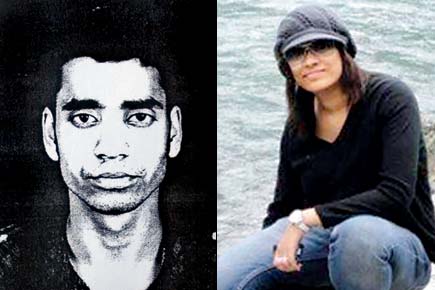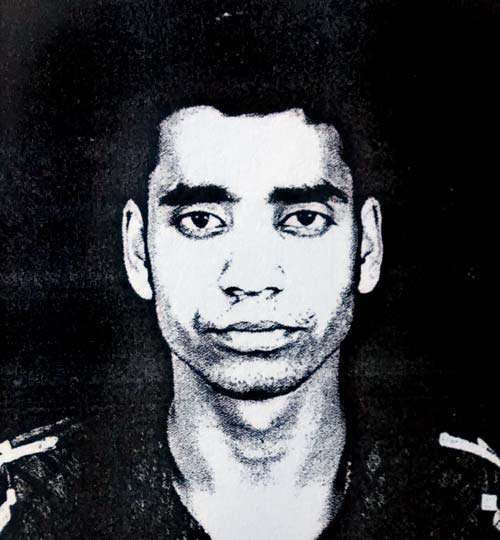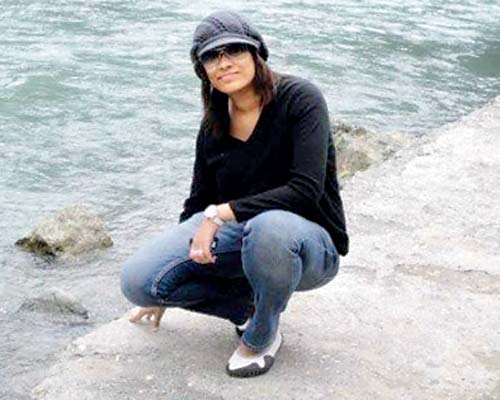An inquiry by the DIG prisons indicates that Mughal used the slow-moving parole extension system to flee; report also points to J&K police’s negligence

What was floated as murder convict Sajjad Mughal’s escape theory has now been confirmed in an inquiry by senior jail officials. The DIG’s report on lawyer Pallavi Purkayastha’s killer jumping parole suggests that Mughal took advantage of the slow and time consuming procedure of parole extension and managed to escape.
ADVERTISEMENT

In March, Mughal made an application to the divisional commissioner’s office for extending his parole.
The inquiry also suggests that serious miscommunication or negligence on Jammu and Kashmir police’s part helped the convict succeed in his plans.

Sajjad was convicted for the murder of lawyer Pallavi Purkayastha
The City Sessions court convicted 26-year-old Mughal in June 2014 for the August 2012 murder of lawyer Pallavi Purkayastha. He was granted parole from February 29 to March 23, on the grounds that he wants to see his ill mother in Uri, Baramulla district, J&K.
After Nashik Divisional commissioner granted parole to Mughal, he was released from the Nashik jail on February 29. In the second week of March, Mughal made an application to the divisional commissioner’s office for extending his parole.
Slow procedure
To work on the application, the divisional commissioner’s office took over a month’s time and in the last week of April, informed Nashik jail authorities that he has been refused parole extension. The jail authority then registered an FIR against Mughal at the Nashik Road police station.
Mughal took advantage of the time consuming procedure of the processing of a parole extension application. He was probably well aware of the jail’s functioning, where they do not check the status of the convict who is out on parole suo motu unless their 90-day parole period is over.
Practice stopped
“Earlier, we used to take the update of a prisoner on his last day of the parole, and if the divisional commissioner has refused extension, then we used to immediately get him booked. But, this practice was stopped on the court’s instructions in different cases in recent years, as it was observed that such practice was an injustice to a prisoner as far as their parole rights are concerned,” said deputy inspector general, west prisons, Rajendra Dhamane.
Mostly, prisoners don’t take such disadvantage as it decreases their chances for next parole or furlough. Mughal’s case is exceptional, Dhamane said.
Maharashtra jail officials’ inquiry into the entire episode indicates negligence and serious miscommunication on the part of J&K police as well. “As per rule, the superintendent of the Nashik jail, through a letter informed the concerned police authority at the Baramulla police station the day Mughal was released from jail. Mughal was given parole on the condition that he would give daily attendance at the local police station in Baramulla. It is the matter of investigation why the Baramulla police did not inform the concerned authority in Maharashtra when the convict did not give attendance at their police station,” Dhamane said.
J&K police says
DIG Baramulla Uttam Chand however, denied the allegation, saying they were not communicated about any Maharashtra jail prisoner being released on parole to meet his mother in the jurisdiction of Baramulla police.
A senior jail official said that senior Maharashtra prison officials spoke to higher authority in J&K police.
Following this, the office of superintendent of Baramulla, retrieved the records of the letters sent from Maharashtra authority regarding Mughal’s parole.
The J&K police are now hunting for Mughal and inquiring with his family members and people associated with him.
 Subscribe today by clicking the link and stay updated with the latest news!" Click here!
Subscribe today by clicking the link and stay updated with the latest news!" Click here!






